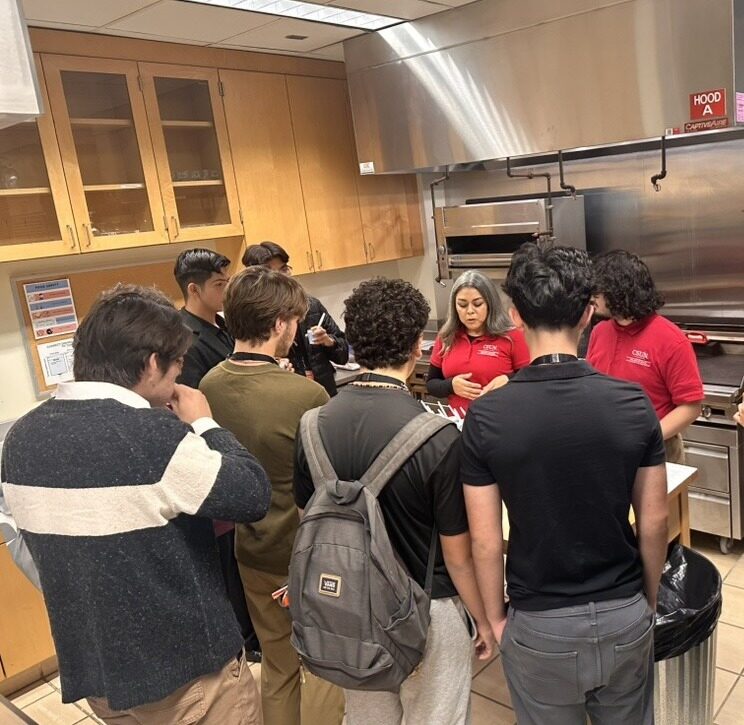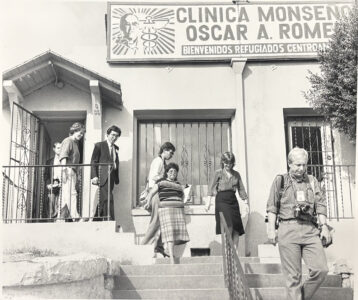
Media Contact: Carmen Ramos Chandler, carmen.chandler@csun.edu, (818) 677-2130
With the support of a $1.2 million grant from the U.S. Department of Agriculture’s National Institute of Food and Agriculture (USDA-NIFA), California State University, Northridge, Los Angeles Mission College, and LAUSD’s Careers through Culinary Arts Program (C-CAP) have partnered to launch “Collaborative Pathways to Food and Nutrition Careers through Culinary and Food Safety Certification.”
The initiative aims to recruit, educate, and empower future food, nutrition and health professionals to positively impact the health and well-being of their communities.
“A major public health concern is the rise in chronic disease,” said family and consumer sciences professor Annette Besnilian, executive director of CSUN’s Marilyn Magaram Center for Food Science, Nutrition and Dietetics (MMC). “With the increase in chronic disease rates in our community, there is a need to train our next generation of the food, nutrition and health professionals to meet the needs of our community.
“This transformative project will provide our students with education, peer and faculty mentoring, fellowships, experiential learning, certifications and connections to the community,’ continued Besnilian, who is one of the leads of the project. “The students who complete Collaborative Pathways fellowship program will be prepared to enter the workforce and make a positive difference in the communities they work in.”
Educators at CSUN and LA Mission College are reaching out to thousands of local high school and community college students to teach them potential careers in food and nutrition. Collaborative Pathways is also training 40 CSUN nutrition and dietetics graduate students to serve as peer mentors, as well as 10 faculty and staff members to serve as mentors, to support undergraduate and graduate student fellows interested in careers the food, nutrition, culinary and public health workforce.
Collaborative Pathways Fellows who complete at least a bachelor’s of science degree in CSUN’s Nutrition, Dietetics and Food Science Program, which is housed in the Department of Family and Consumer Sciences in the College of Health and Human Development, will have the qualifications to apply for at least four occupations deemed “mission critical” by the USDA’s Office of Human Capital Management — dietitian and nutrition specialists, consumer safety specialists, consumer safety inspectors and food inspection specialists.
Over the course of the four-year grant, Collaborative Pathways officials expect to impact more than 4,600 students. That number includes 3,500 high school students in the Careers in Culinary Arts Program of the Los Angeles Unified School District, who will receive information about academic programs and careers in nutrition and food science.
About 1,000 community college students will receive presentations and support to transfer to CSUN or another four-year university and preparation for certification in food safety and culinary arts.
Sixty undergraduate CSUN students will receive peer mentorship, financial assistance and other support as they pursue a certification in food safety and/or culinary arts, as well as a bachelor’s degree in nutrition, dietetics and food science. Forty graduate students will also receive peer mentorship, financial assistance and other support as they pursue a certification in food safety and culinary arts, as well as a master’s degree in nutrition, dietetics and food science.
“There are many chronic diseases affecting the community and there is a great need for food and nutrition and health professionals who are trained in the most updated research to work with diverse, low-income community members to help them meet their health and wellness goals,” Besnilian said. “Collaboration between faculty, staff, students and our community partners is the key to success. Through these collaborations, we strive to provide training, education, certification, experiential learning and hands-on activities to develop the next generation of our workforce.”



